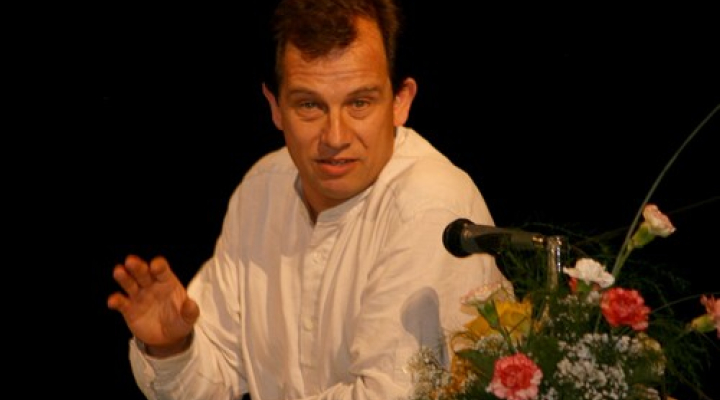Minorities and science in New Europe
Knowledge-based societies work only if we are able to put the aquired knowledge in the service of good and useful initiatives – said DAHR’s MEP Csaba Sógor at the scientific conference held on the occasion of the town days in Remetea, Harghita County.
The eleventh edition of the Town Days in Remetea was held between July 10-11 2010 with the motto „Knowledge and resistance”. Locals and guests could take part in the several sporting and entertainment events like crafts, fishing contests, chess tournaments, dance shows, concerts, street balls and the reenactment of the 1849 battle of Piski.
In addition to programmes for recreation, this year’s town days’ programme included a scientific conference entitled „Future of minorities in the Knowledge-based Society” with MEP Csaba Sógor amongst the speakers. Other speaker included Andrew Balas from the Old Dominion University in the USA, Péter Deák from the Hungarian Scientific Academy’s Biology Centre in Szeged, Zoltán Bíró, dean of the Sapientia EMTE University, Katalin Kovács, professor at the Babeş-Bolyai University, Dr. Tamás Csikány, docent at the Zrínyi Miklós University, university professor Ákos Egyed, military historian Dr. József János Szabó and MP József Kötő.
MEP Csaba Sógor spoke about „Minorities and science in the new Europe” and reminded the audience that the European society’s future lies exactly in minorities and science. He underlined the fact that we have not achieved the goals of the Lisbon strategy of Europe becoming the leading power in the world by 2010 through its knowledge-based society because we have invested mostly in theoretical, not practical knowledge. According to Csaba Sógor, a knowledge-based society is ideal if we are able to put the acquired knowledge in the service of good and useful initiatives. „Specialists say that we can best use our knowledge through two means, culture and religion. I think that the future of the Hungarian minority in Romania depends on the fact that we are able to use our knowledge in these two fields” – said the MEP.
Sógor Csaba also stated that we must learn from our past. He made the example of Hungary where it was obvious that after the hard times following 1920 the only long-term investment to make was the one supporting education and science.
In addition to programmes for recreation, this year’s town days’ programme included a scientific conference entitled „Future of minorities in the Knowledge-based Society” with MEP Csaba Sógor amongst the speakers. Other speaker included Andrew Balas from the Old Dominion University in the USA, Péter Deák from the Hungarian Scientific Academy’s Biology Centre in Szeged, Zoltán Bíró, dean of the Sapientia EMTE University, Katalin Kovács, professor at the Babeş-Bolyai University, Dr. Tamás Csikány, docent at the Zrínyi Miklós University, university professor Ákos Egyed, military historian Dr. József János Szabó and MP József Kötő.
MEP Csaba Sógor spoke about „Minorities and science in the new Europe” and reminded the audience that the European society’s future lies exactly in minorities and science. He underlined the fact that we have not achieved the goals of the Lisbon strategy of Europe becoming the leading power in the world by 2010 through its knowledge-based society because we have invested mostly in theoretical, not practical knowledge. According to Csaba Sógor, a knowledge-based society is ideal if we are able to put the acquired knowledge in the service of good and useful initiatives. „Specialists say that we can best use our knowledge through two means, culture and religion. I think that the future of the Hungarian minority in Romania depends on the fact that we are able to use our knowledge in these two fields” – said the MEP.
Sógor Csaba also stated that we must learn from our past. He made the example of Hungary where it was obvious that after the hard times following 1920 the only long-term investment to make was the one supporting education and science.











